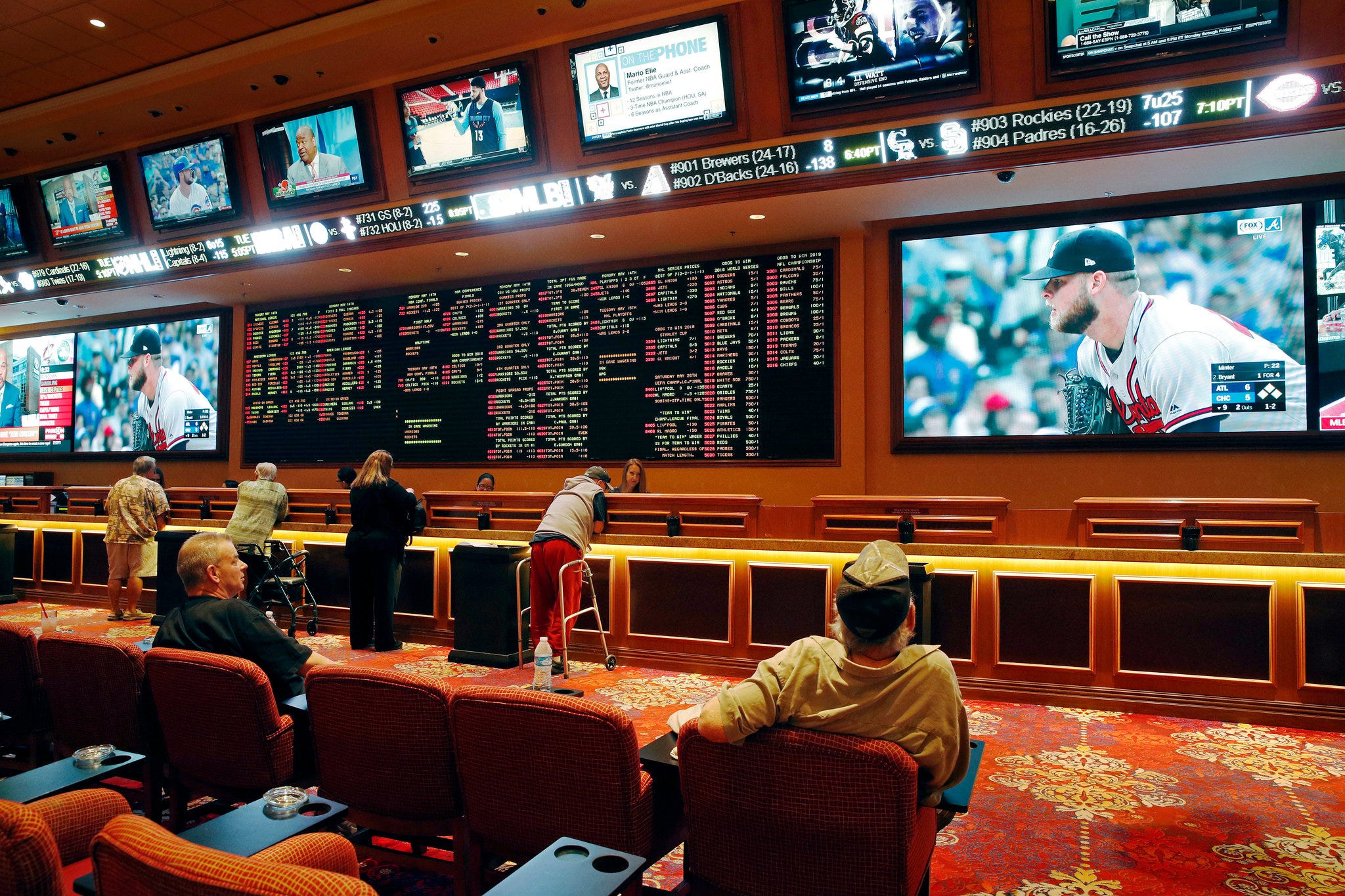
TALLAHASSEE — Seminole Tribe leaders on Wednesday announced a plan to roll out sports betting at their casinos in December — a first step in what could be a major expansion of gambling in Florida triggered by a go-ahead from the U.S. Supreme Court.
The announcement came after more than two years of legal wrangling about a 2021 deal with the state that allowed the Seminoles to offer online sports betting anywhere in Florida and add craps and roulette to their casinos.
While the deal would allow sports betting statewide, the tribe is moving forward initially with a more-limited step of in-person sports betting at its six Florida facilities. A lawsuit challenging broader online sports betting remains pending at the Florida Supreme Court.
The U.S. Supreme Court on Oct. 25 refused to block the 2021 deal, known as a compact, signed by Gov. Ron DeSantis and Seminole Tribe of Florida Chairman Marcellus Osceola Jr. and ratified by state lawmakers. That case was filed in federal court by two pari-mutuel companies. The pending Florida Supreme Court case is separate from the federal lawsuit.
Pointing to the U.S. Supreme Court action, a press release issued Wednesday by the Seminole Tribe and Seminole Hard Rock said they plan “to celebrate ‘A New Era in Florida Gaming’ with star-studded celebrations” next month.
When will sports betting be offered in Florida?
The Seminoles will start offering sports betting, craps and roulette at the tribe’s three South Florida casinos on Dec. 7, the release said. The Seminole Hard Rock Hotel & Casino Tampa will launch the games on Dec. 8, and the tribe’s casinos in Immokalee and Brighton will follow on Dec. 11.
“The Seminole Tribe thanks the state of Florida, the U.S. Department of the Interior and the U.S. Department of Justice for defending our compact. By working together, the tribe, the state and the federal government achieved a historic legal victory,” Osceola said in a prepared statement.
What will be the impact of sports betting in Florida?
The addition of the games at the Seminoles’ casinos will generate more than 1,000 new jobs, according to Jim Allen, CEO of Seminole Gaming and chairman of Hard Rock International.
“This is a historic milestone that immediately puts Florida in the same league with the world’s great gaming destinations,” Allen said.
DeSantis said in the release that the tribe’s “new initiative will create jobs, increase tourism, and provide billions in added revenue” for the state.
Will sports betting be available statewide in Florida?
Wednesday’s announcement indicated initial sports betting will be restricted to the tribe’s facilities and did not detail when it could go statewide.
“This news is about in-person sports betting. No additional information is available today,” Gary Bitner, a spokesman for the Seminoles, said in an email.
The compact included a “hub-and-spoke” plan that would allow gamblers to place mobile sports wagers anywhere in Florida, with bets handled by computer servers on tribal property. The deal said bets “using a mobile app or other electronic device, shall be deemed to be exclusively conducted by the tribe.”
In addition to allowing the Seminoles to add craps and roulette at their casinos, the agreement also allowed the Seminoles to add three casinos on tribal property in Broward County. In exchange, the tribe agreed to pay the state at least $2.5 billion over the first five years and possibly billions more throughout the three-decade pact.
Who opposed the Seminole gambling compact?
Pari-mutuel companies West Flagler Associates and Bonita-Fort Myers Corp. filed a federal lawsuit challenging the deal, arguing that the sports-betting provision violated the federal Indian Gaming Regulatory Act because it authorized gambling off of tribal lands.
U.S. District Judge Dabney Friedrich in November 2021 ruled against the compact, calling the sports-betting plan a “fiction” and invalidating other parts of the agreement. A panel of the U.S. Circuit Court of Appeals for the District of Columbia this summer reversed the ruling, and the full appeals court in September refused to reconsider the challenge.
The pari-mutuel companies then requested that the appeals-court panel decision be put on hold and asked the U.S. Supreme Court to weigh in on the issue. The Supreme Court last week refused to block the deal.
Meanwhile, the pari-mutuel companies and an owner, Isadore Havenick, filed a lawsuit at the Florida Supreme Court, alleging the sports-betting component of the agreement violates a 2018 constitutional amendment prohibiting expansions of casino-style gambling without voter approval. It is unclear whether the state Supreme Court will agree to take up the case.
West Flagler holds three jai alai licenses, while Bonita-Fort Myers Corp. does business as Bonita Springs Poker Room in Southwest Florida. A representative of the companies on Wednesday said they would not comment on the Seminoles’ announcement because of the pending litigation.
The tribe in 2021 briefly rolled out the Hard Rock SportsBook mobile app amid the legal wrangling but stopped accepting wagers and deposits on the app after Friedrich’s ruling.
The expansion of sports betting, craps and roulette continues the Seminoles’ domination of gambling in Florida. The tribe — a global player in the industry — launched its gambling operations in Florida in 1979, when it became the first North American Indian tribe to open an “unlimited stakes” bingo hall.